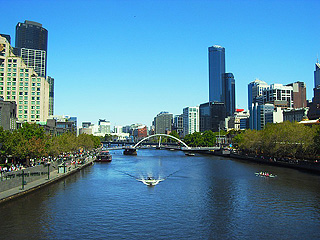Bengali Payslip Translation
 We provide payslip translations in many languages, including Bengali. Besides letters of appointment or employment contracts, it is a very common document used to verify your past working experience or income.
We provide payslip translations in many languages, including Bengali. Besides letters of appointment or employment contracts, it is a very common document used to verify your past working experience or income.
Our Bengali NAATI translators provide both Bengali to English translation and English to Bengali translation services for documents.
Translate My Payslip
- Can be done within two days or faster
- Express options available
- No office visit required
- Best price guarantee
- NAATI translator stamped
- Mailed to your address
- Just submit your payslips using the form on this page for a free quote
- There are no hidden charges for fast Bengali translation by NAATI certified Bengali translators
- Many happy repeat customers
- We provide discounts for repeat customers or large orders
- NAATI certified Bengali translators for immigration or legal documents
- Full-time Bengali translators experienced in translating all kinds of documents
- Personal, friendly service
Bengali Translation Service Australia-Wide
- Sydney
- Melbourne
- Brisbane
- Perth
- Canberra
- Darwin
- Hobart
- Adelaide
- Wollongong
- Newcastle
- Cairns
- ID card translations
- Degree translations
- Diploma translations
- Passport translation
- Family register/book translations
- Employment reference translations
- Police Clearance Certificate Translation
- Change of name certificate translations
- Vaccination certificate translations
- Education certificate translations
- Employment reference translations
- Birth certificate translation
- Tertiary certificate translations
- Identity certificate translations
- Divorce certificate translations
- Baptism certificate translations
- Custody document translations
- Academic transcript translations
- Legal translation services
- Death certificate translation
- Degree certificate translations
- Marriage certificate translations
- Medical certificate/report translations
- Letters of appointment translations
- Employment contract translations
- Academic transcript translations
- Professional certificate translations
- Trade certificate translations
- Driving licence translation
- Motor cycle licence translations
- Primary school certificate translations
- Secondary certificate translations
- Vocational certificate translations
More About The Bengali Language
Bengali exhibits diglossia between the written and spoken forms of the language. Two styles of writing, involving somewhat different vocabularies and syntax, have emerged:
- Shadhu bhasha (সাধু shadhu = 'chaste' or 'sage'; ভাষা bhasha = 'language') was the written language with longer verb inflections and more of a Pali/Sanskrit-derived (তৎসম tôtshômo) vocabulary. Songs such as India's national anthem Jana Gana Mana (by Rabindranath Tagore) and national song Vande Mātaram (by Bankim Chandra Chattopadhyay) were composed in Shadhubhasha. However, use of Shadhubhasha in modern writing is uncommon, restricted to some official signs and documents in Bangladesh as well as for achieving particular literary effects.
- Cholito bhasha (Bengali: চলিত ভাষা) (চলিত cholito = 'current' or 'running'), known by linguists as Manno Cholit Bangla (Standard Colloquial Bengali), is a written Bengali style exhibiting a preponderance of colloquial idiom and shortened verb forms, and is the standard for written Bengali now. This form came into vogue towards the turn of the 19th century, promoted by the writings of Peary Chand Mitra (Alaler Gharer Dulal, 1857), Pramatha Chowdhury (Sabujpatra, 1914) and in the later writings of Rabindranath Tagore. It is modeled on the dialect spoken in the Shantipur region in Nadia district, West Bengal. This form of Bengali is often referred to as the "Nadia standard" or "Shantipuri bangla".
While most writing is in Standard Colloquial Bengali, spoken dialects exhibit a greater variety. South-eastern West Bengal, including Kolkata, speak in Standard Colloquial Bengali. Other parts of West Bengal and western Bangladesh speak in dialects that are minor variations, such as the Medinipur dialect characterised by some unique words and constructions. However, a majority in Bangladesh speak in dialects notably different from Standard Colloquial Bengali. Some dialects, particularly those of the Chittagong region, bear only a superficial resemblance to Standard Colloquial Bengali. The dialect in the Chattagram region is least widely understood by the general body of Bengalis. The majority of Bengalis are able to communicate in more than one variety—often, speakers are fluent in colitobhasha (Standard Colloquial Bengali) and one or more regional dialects.

Melbourne is the capital and most populous city in the state of Victoria, and the second most populous city in Australia. The Melbourne City Centre is the hub of the greater metropolitan area and the Census statistical division—of which "Melbourne" is the common name. As of June 2010, the greater geographical area had an approximate population of four million. Inhabitants of Melbourne are called Melburnians or Melbournians.
The metropolis is located on the large natural bay known as Port Phillip, with the city centre positioned at the estuary of the Yarra River (at the northernmost point of the bay). The metropolitan area then extends south from the city centre, along the eastern and western shorelines of Port Phillip, and expands into the hinterland. The city centre is situated in the municipality known as the City of Melbourne, and the metropolitan area consists of a further 30 municipalities.
